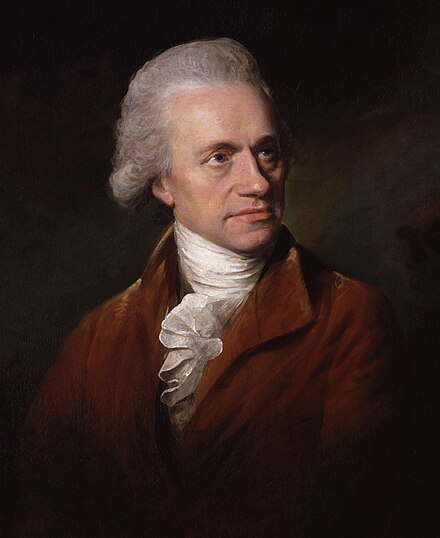 |
| Image via Der Wik |
Herschel was a polymath in an age famous for polymaths. As an astronomer, he discovered the planet Uranus as well as four moons of Saturn. As an economist, he noted the striking correlation between the number of sunspots visible on the sun and the price of grain. When experimenting with new techniques for observing sunspots, he discovered infrared radiation. He was the first to note that the Martian ice caps vary by season. Pointing his magnifying devices inwards, not outwards, he established via microscope observation that coral was not a plant (the cells did not have cell walls).
In his spare time, he was a prolific composer, with eighteen symphonies and many shorter works to his credit. His was a remarkable career in an age of remarkable careers. So remarkable that I've posted his music before, as well as mentioning him in a number of other posts. He may be the only scientist that could have his own blog post tag here.
3 comments:
Amazing. There must be more people like him somewhere.
Thanks as always for the lessons.
Interestingly, my primary (elementary-to-middle) school in Cape Town, South Africa, was erected on the site where Herschel put up his telescope to observe the heavens during his visit to the Cape. An obelisk had been put up to commemorate the spot where Uranus was discovered.
Just a bit of trivia from my childhood . . .
Wonderful! Thank you!
Post a Comment